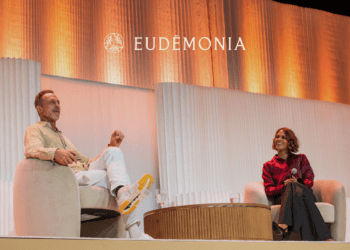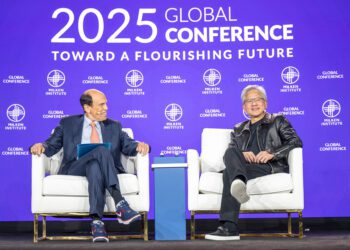Over the summer, Karl Feitelberg and Jason Feitelberg of Sterling Resources hosted a provocative and engaging Newport summit, Rhode Island which brought together an impressive panel comprising Her Majesty Queen Diambi, Dr. Matthew Putman, Kaushal Sheth, and Anwaar Al Mahmeed. This intimate ocean front dinner party focused on a critical and timely topic: the intertwining of technology and geopolitics in contemporary society. The discussion delved into whether technology serves as a unifying force or a divisive tool, especially in the context of emerging domains like quantum computing, artificial intelligence (AI), semiconductors, and biotechnology.
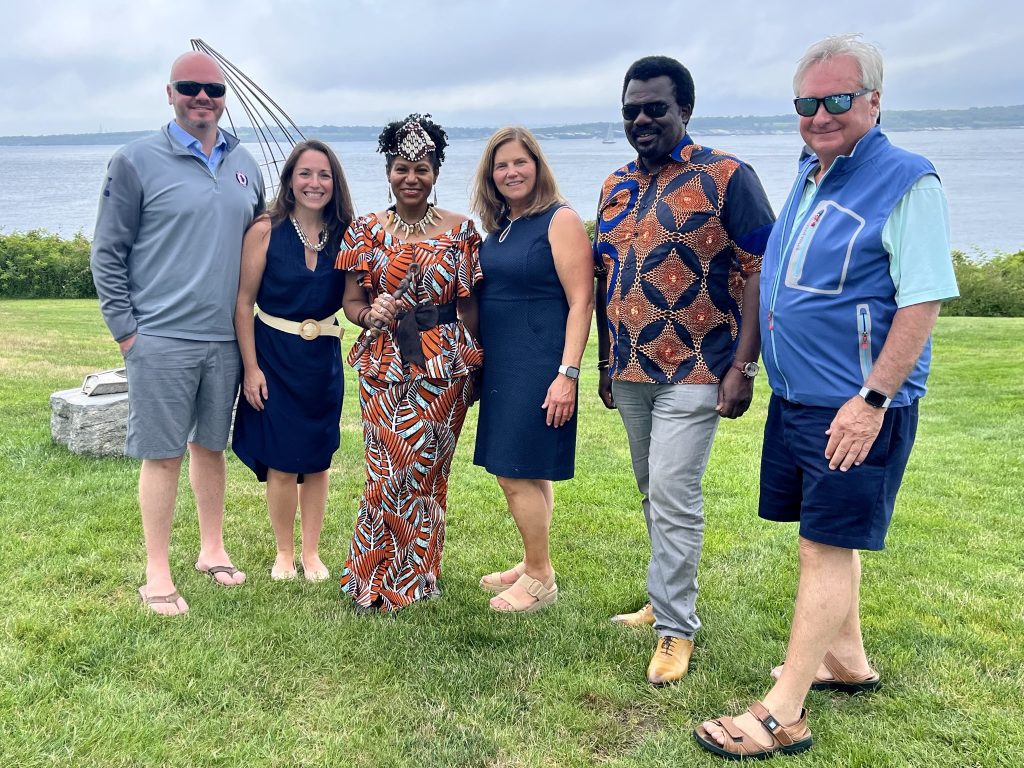
Panelist Backgrounds
- Her Majesty Queen Diambi: As the traditional leader of the Bakwa Luntu people of Central Kasaï and the African descendants of Brazil and Panama, Queen Diambi actively fosters international alliances and friendships. She spearheads various international philanthropic projects, leveraging her position to create positive change.
- Dr. Matthew Putman: The CEO and co-founder of Nanotronics, Putman is a Founding Member of the Quantum Industry Coalition. His expertise in applied mathematics, physics, and material science is backed by numerous publications, patents, and news articles. He is a key thought leader in AI, tech, manufacturing, and semiconductor innovation.
- Kaushal Sheth: With extensive experience in tech entrepreneurship, Sheth is a vanguard in AI applications. His work bridges computer science and neuroscience, contributing to the development of models replicating human brain design.
- Anwaar Al Mahmeed: As a venture capitalist and a significant player in the deep tech and blockchain sectors, Al Mahmeed brings a wealth of knowledge in innovative financial technologies and their implications.
Discussion Highlights
The panel explored several critical questions, including whether current technological advancements are moving us towards unity or division. In the context of the race for supremacy in fields like quantum computing and AI, the conversation also pondered if the right questions are being asked.
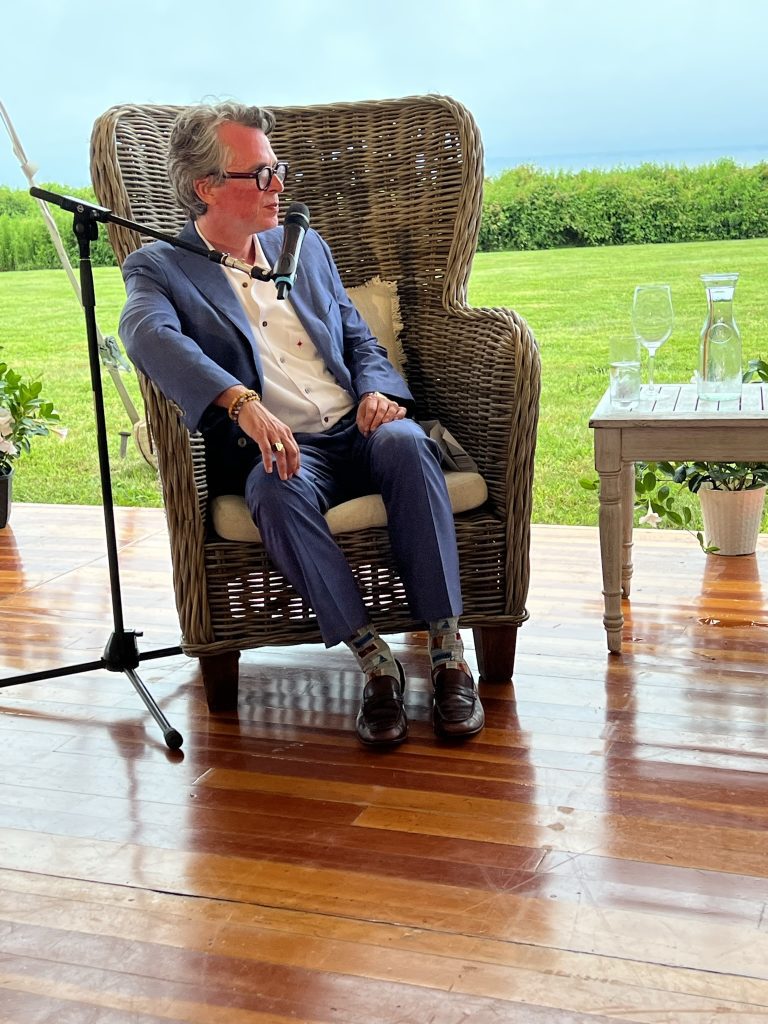
One of the key excerpts from the conversation involved the ethical implications of AI, particularly its potential to infringe upon personal sovereignty and privacy. The example given was the use of functional MRI and AI to interpret and visualize human thoughts, raising concerns about the loss of mental privacy and the dangers of such technologies in authoritarian regimes. This example illustrates the dual nature of technology as both a liberator and a potential tool for control and surveillance.
The panelists also discussed the impact of technologies like blockchain and digital currencies. While initially perceived as instruments of financial freedom, concerns were raised about how these technologies could be used for tighter control over financial transactions and personal data.
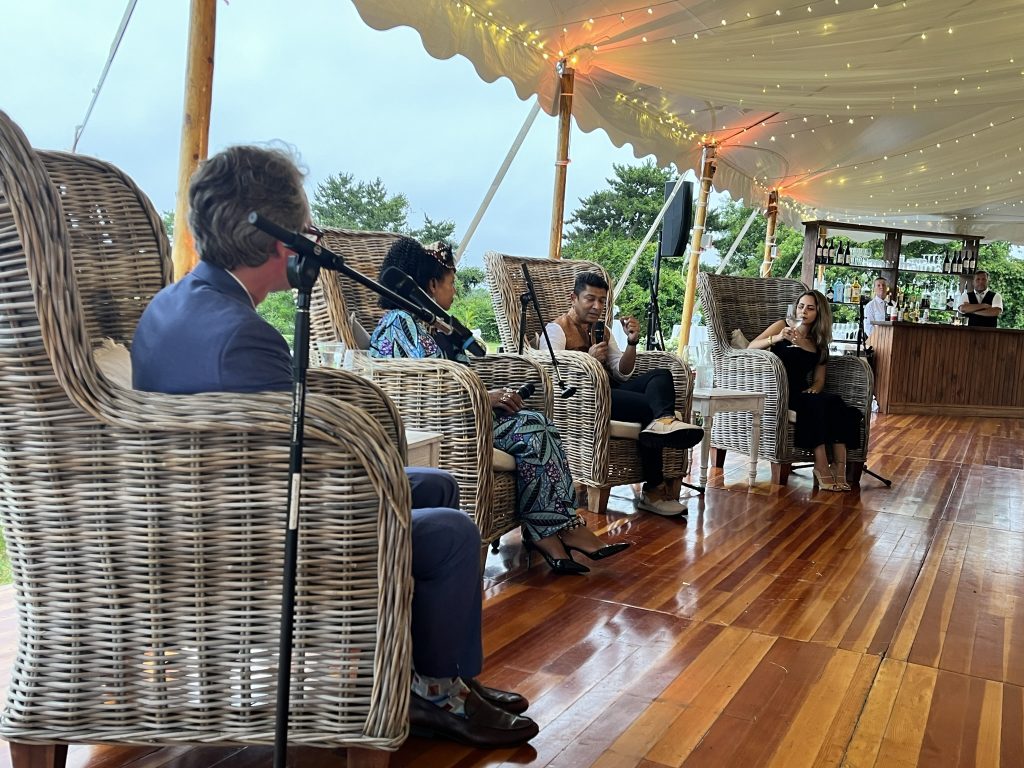
However with new technologies now becoming accessible to developing countries, Dr. Matthew Putman pointed out the massive benefits and potential ripple effect from individual countries who localize their supply chains. This would not only jumpstart the global economy but also create a massive wave of innovation that is more sustainable, better for the environment, and bolsters competition. New technologies make this possible and his life’s work is dedicated to creating this technological utopia.
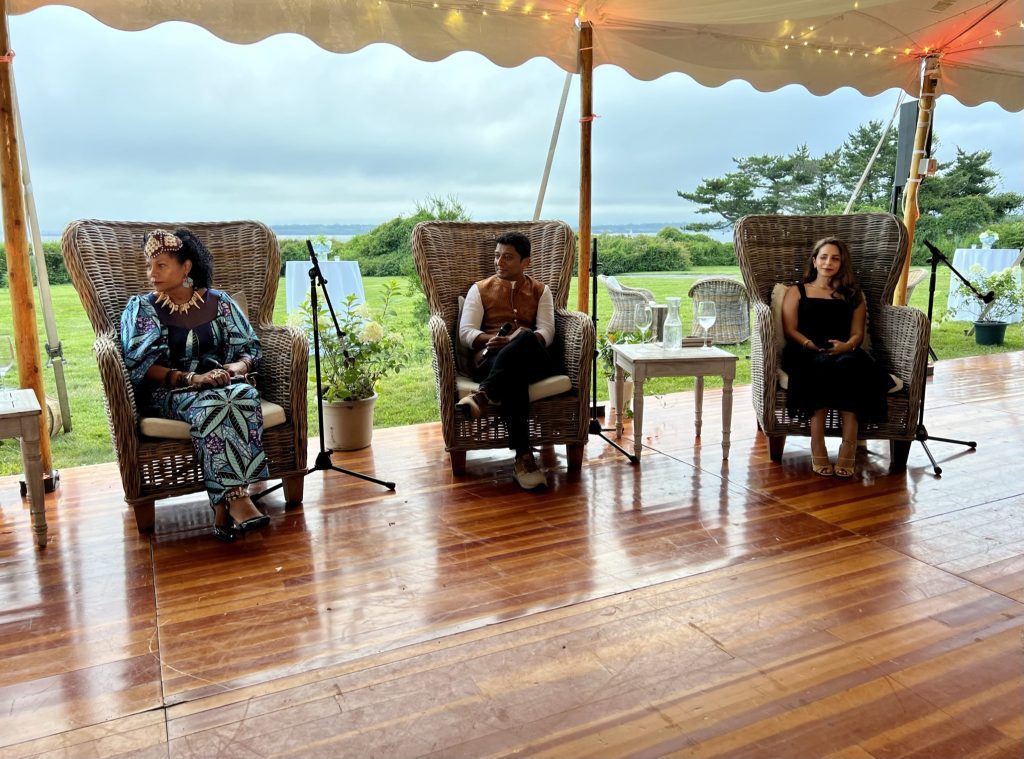
The conversation in Newport highlighted the complex and often contradictory roles of technology in modern society. It underlined the importance of cautious and ethical development and regulation of new technologies, balancing innovation with the protection of individual rights and freedoms and potential for enriching and empowering developing countries. The insights from this panel are crucial in understanding the dynamic relationship between technology, geopolitics, and individual liberty in the 21st century.



